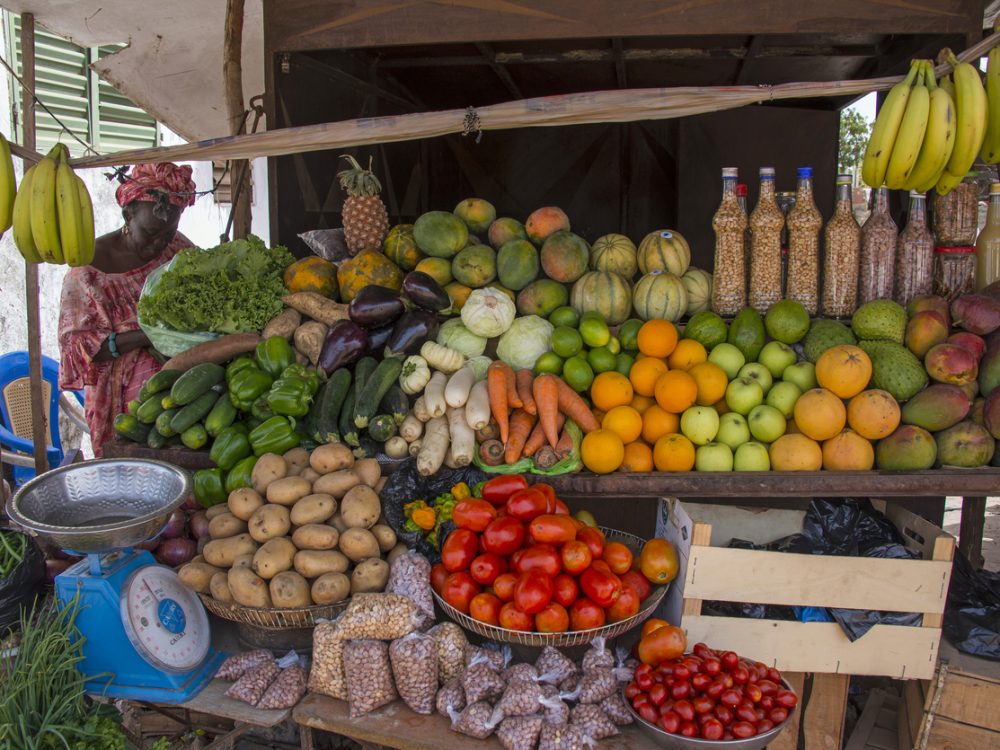
Voices of the Cashew Sector – André M. Tandjiekpon
In 2020, Development Gateway (DG) partnered with Cultivating New Frontiers in Agriculture (CNFA) under the USDA West Africa PRO-Cashew project to develop the Cashew-IN data collection and analysis platform.
The project has identified gaps in the data collection, storage, usage and dissemination related to the cashew sector in all five of the implementing countries (Côte d’Ivoire, Benin, Burkina Faso, Ghana, and Nigeria). The project is now working to address these gaps through a multi-country cashew data management system (Cashew-IN) that will facilitate access to and use of data to improve decision-making for policymakers, farmers, and the private sector. The ultimate goal is to generate better market outcomes for cashew nuts in these countries.
André M. Tandjiekpon, Executive Secretary of the Consultative International Cashew Council (CICC), gives an overview of CICC’s work and explains how the Cashew-IN platform developed by CNFA and DG will support his work.

In a few words, what’s the CICC?
The CICC is an international organization for the promotion of cashew value chains that currently has 11 member states, including Benin, Burkina Faso, Cameroon, Côte d’Ivoire, Ghana, Guinea, Guinea Bissau, Mali, Nigeria, Senegal, and Togo. Created in 2016, its objective is to provide a framework for consultation and promotion of the cashew sector through policy coordination and cooperation among member states.
What is your ambition for the cashew sector over the next five years?
The CICC’s ambition is to bring together States that collectively hold at least 80% of the world’s cashew nut production to increase the processing capacity installed and used to at least 40% in African countries, to influence the international governance of the sector by harmonizing attractive, and to secure policies to increase private investment.
How can the Cashew-IN tool help you achieve your objectives?
The Cashew-IN tool will contribute to the availability of reliable statistical data and information on the development of the sector in terms of production, processing, marketing, and consumption. Additionally, Cashew-IN will support the decisions of member states on policy issues, as well as, public and private actors to increase and secure investments in the sector.
This interview was edited for clarity and style.
To learn more about Cashew-IN, check out our Cashew-IN program playlist on YouTube.
For any questions or comments, please reach out to Constance Konan at ckonan@developmentgateway.org
Partners
USDA
The U.S. Department of Agriculture is a federal department that provides leadership on food, agriculture, natural resources, rural development, nutrition, and related issues based on public policy, the best available science, and effective management. Through their PRO-Cashew project, USDA is working to boost the competitiveness of West African producers by improving efficiency and quality in production and trade, and by working to develop more coherent regional trade and investment policies.
CNFA
Cultivating New Frontiers in Agriculture is an international agricultural development organization that specializes in the design and implementation of sustainable, enterprise-based agricultural initiatives. We work with businesses, foundations, governments, and communities to build customized local and global partnerships that meet the world’s growing demand for food. Since its inception in 1985, CNFA has designed and implemented enterprise-based, agricultural development initiatives to facilitate market access, enhance agribusiness competitiveness, increase productivity, and improve access to inputs and financing in 47 countries around the world.
Share
Recent Posts

Development Gateway Collaborates with 50×2030 Initiative on Data Use in Agriculture
Development Gateway announces the launch of the Data Interoperability and Governance program to collaborate with the 50x2030 initiative on data use in agriculture in Senegal for evidence-based policymaking.

Strengthening Online Safety Through Prevention in the Philippines
Tech-Facilitated Gender-Based Violence continues to evolve alongside emerging technologies. This blog explores how preventative measures, such as the Safety By Design approach, can be used to create a safer internet.

Preparing Jordan’s Education System for the AI Age
This blog introduces Asas, an early grade education program led by IREX and DG in partnership with Jordan’s Ministry of Education, and explores what AI readiness looks like in early grades and how AI can be integrated safely and sustainably into education systems.